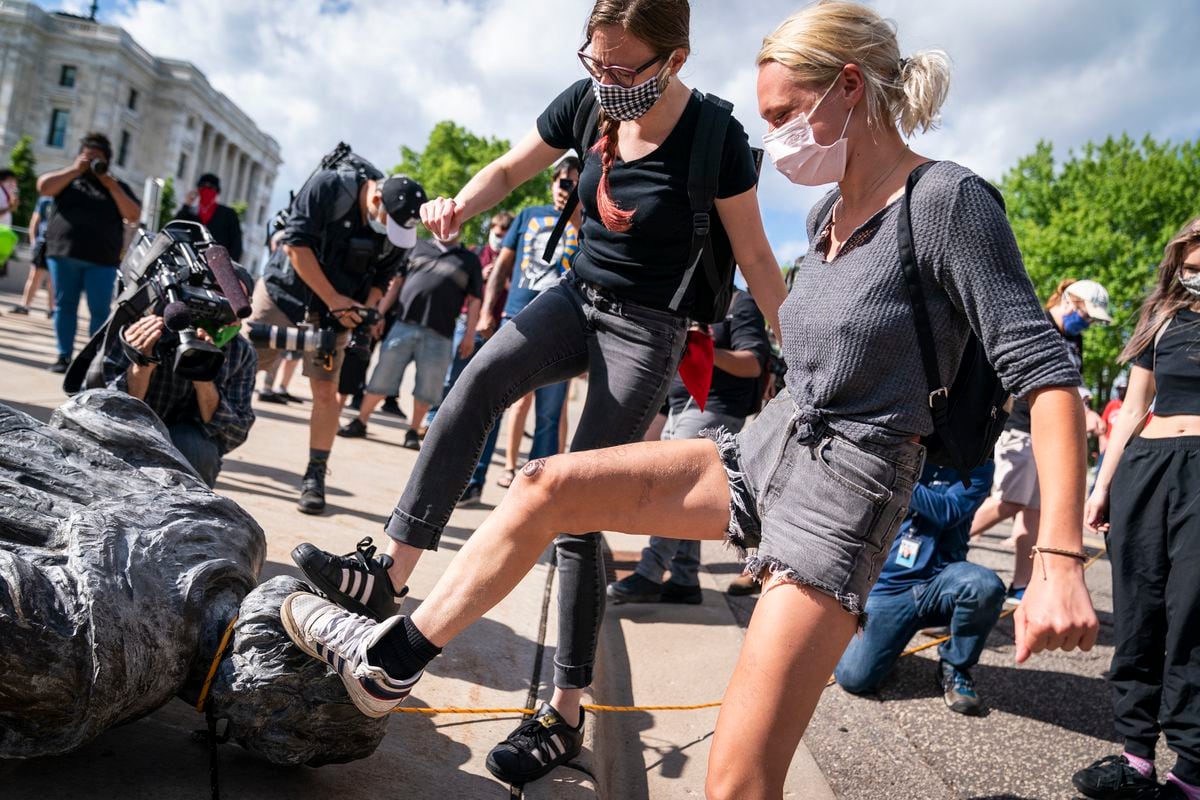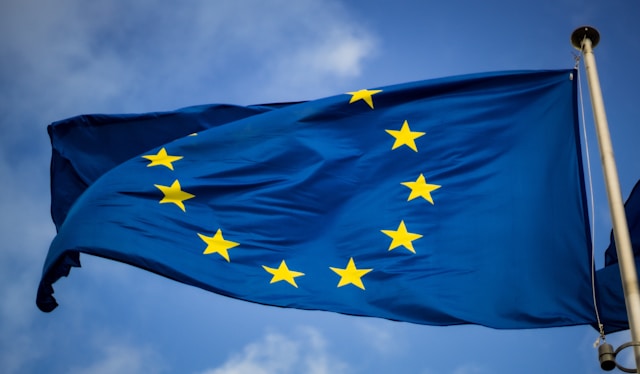Joe Biden on Friday became the first president in US history to officially recognize and commemorate Indigenous Peoples’ Day on the second Monday in October, the national holiday for Columbus Day, which he maintains while pointing out the “atrocities.” caused by the conquest. The city of Boston, also for the first time, has decided to erase the figure of the explorer from this date and dedicate itself entirely to the native peoples. New York public schools debuted the Italian Heritage Day / Indigenous Peoples Day designation this year, saying goodbye to the adventurer. And in Philadelphia, after a dispute in the courts that culminated this Saturday, the traditional parade will end before a statue of the aforementioned, but wooden wall up to the top.
The controversy over the celebration of Columbus Day, the tributes and its monuments has lasted for years in the United States, but after the great mobilization against racism ignited in the summer of 2020, as a result of the death of the African-American George Floyd, it has won tractive force. In a country mired in a national catharsis on its slave-owning past and the oppression of minorities, which is revising all its symbols and removing confederate statues, it is difficult for European colonization to go unnoticed. And Christopher Columbus, although he never set foot in this country and died believing that he had discovered the Indies, occupies a leading place in the bank of the accused as a symbol of the conquest, its glory and its miseries.
For Roberto Múkaro Borrero, president of the Confederation of the Taibo People (the first tribe that Columbus encountered in the Bahamas), the explorer “is not someone who should be honored with taxpayer money at a national festival, it is a date built on the basis from mythology and racism, the fact that more and more cities celebrate indigenous peoples is an indication of this need for change ”. “It is a symbol of supremacism and slavery,” he says.
More than a dozen States -from Michigan to Wisconsin, passing through the District of Columbia, which is home to Washington and whose name comes from Genoese-, in addition to a hundred cities already celebrate the Day of Indigenous Peoples after the trickle of the last five years , and statues of the sailor have been falling from the pedestals all over the country, though not without a row.
The change in New York school policy, decided in May, this year sparked angry criticism from then-state governor Andrew Cuomo, of Italian descent. In Boston, Italian-American organizations have also criticized the lack of prior debate. A New Jersey school district, which voted to remove the Columbus reference, just backtracked this year.

Join EL PAÍS now to follow all the news and read without limits
Subscribe here
This conflict, unlike what happens with the Confederate sculptures, does not have all the Democrats in agreement, not only because of the obvious historical differences between the characters, but because the Columbus celebration was born in the United States as a way to honor the Italian and Catholic immigrants at a time when they formed a particularly mistreated community, a victim of xenophobic crimes, and Franklin Delano Roosevelt declared October 12 a federal holiday in 1934 and from 1971 it was celebrated on the second Monday of every October, the month that recognizes the Italian-American legacy.
That Biden has issued two different presidential proclamations, the new one referring to indigenous peoples and the traditional one dedicated to Columbus, shows the need for political balancing act. In Columbus Day, however, the president also recognizes “the painful history of injustices and atrocities that many European explorers inflicted on tribal nations and indigenous communities.” In that of the indigenous peoples, he pointed to internal guilt: “For generations, federal policies have systematically tried to assimilate and displace native peoples and eradicate native cultures,” he wrote.
Spain feels this controversy, logically, as its own. The Embassy in the United States assures that the defense of the Spanish legacy as “one of its priorities” and has carried out different actions to try to safeguard its image, not only with regard to Colón: since the demonstrations, as when it criticized the demolition of the statue of Fray Junípero de Serra last year in San Francisco, to educational projects, such as a Guide to Spain in Washington, on the Spanish monuments and symbols found in the capital, including a figure of the Genoese sailor who survives in the roundabout in front of the train station.
The battle has also recently resurfaced after criticism from the president of Mexico, Andrés Manuel López Obrador, who questions that Spain does not apologize for the excesses of the conquest, and was answered with derision by former Spanish president José María Aznar.
Joe Biden’s White House has opted for a Solomonic solution for now, celebrating both ideas, in line with what Andrew Cuomo said. “You can celebrate Indigenous Peoples’ Day without messing with Columbus’s. Why insult or disdain the Italian contribution? ”. From Boston, Heather Leavell, co-founder of the Italian-American movement in favor of Indigenous Day, points out, however, that “the Italian legacy does not have to be celebrated precisely that second Monday in October, Italian-American culture enjoys a recognition that the peoples indigenous people are lacking, we must prioritize their feelings in this ”.
The shift in sensitivity to historical figures seems, however, inexorable in the United States. In Newark, the largest city in the state of New Jersey, with about 300,000 inhabitants, this year unveiled the design of a new monument in tribute to Harriet Tubman, the abolitionist heroine, born slave, who freed dozens of blacks. In 2020 they removed another from Christopher Columbus.
Follow all the international information at Facebook and Twitter, o en our weekly newsletter.




/cloudfront-eu-central-1.images.arcpublishing.com/prisa/FSDCKBL7AX4WNEUNQ5UEXRBNP4.jpg)